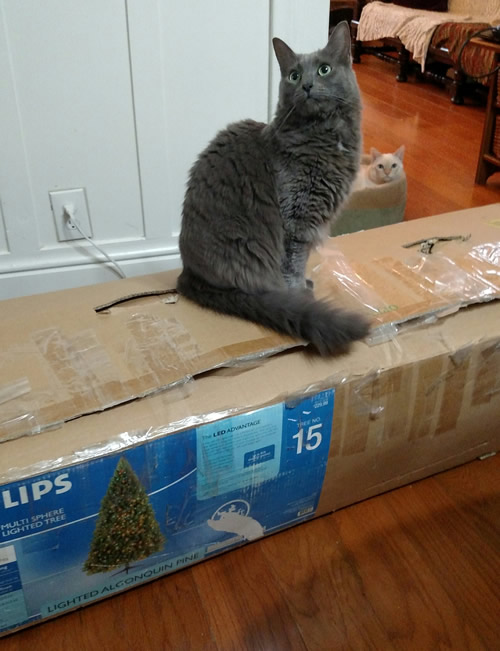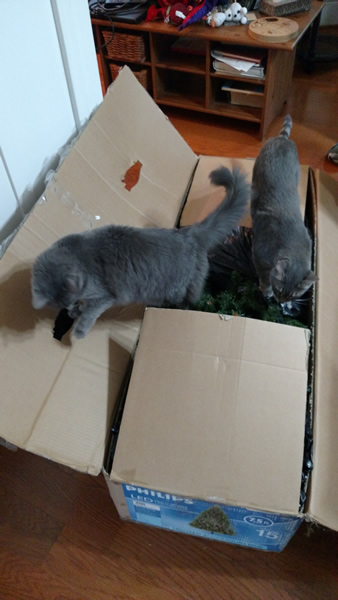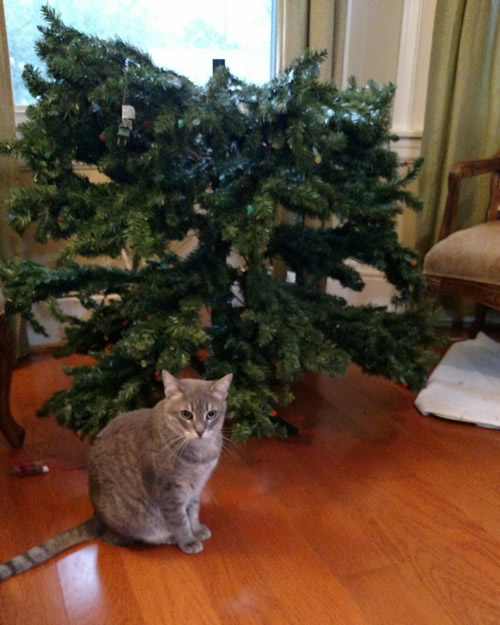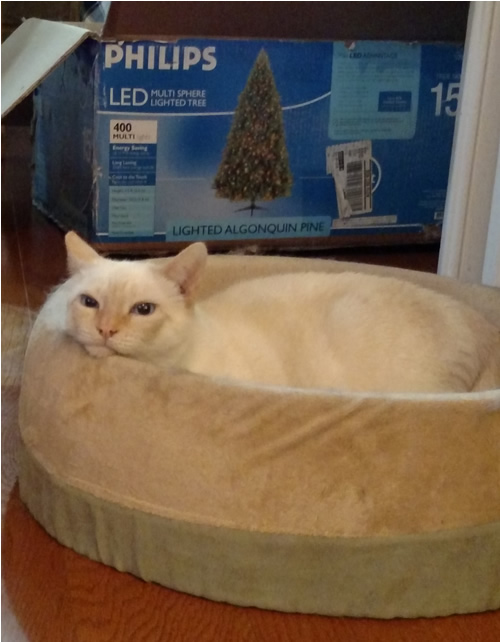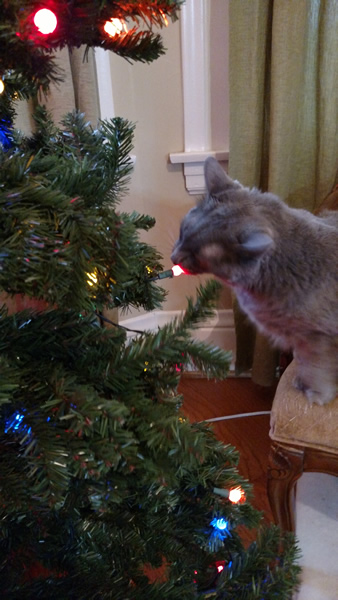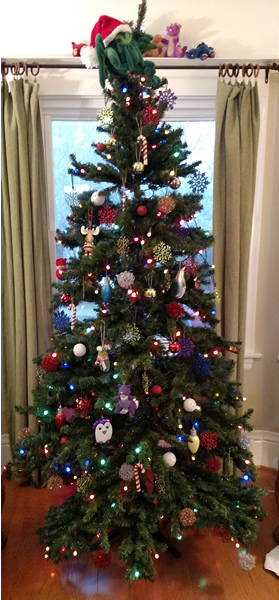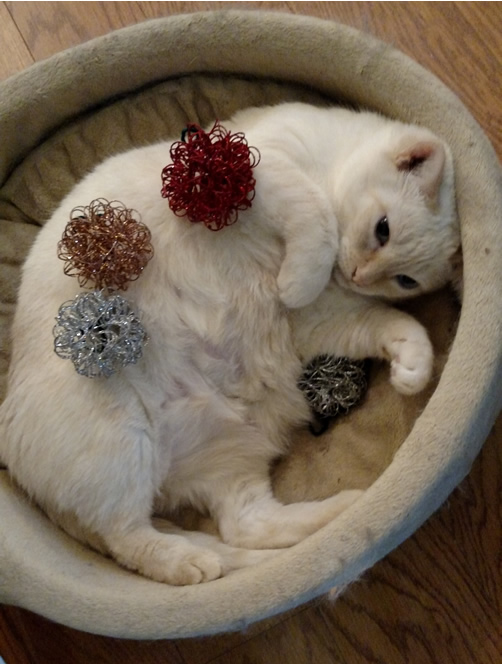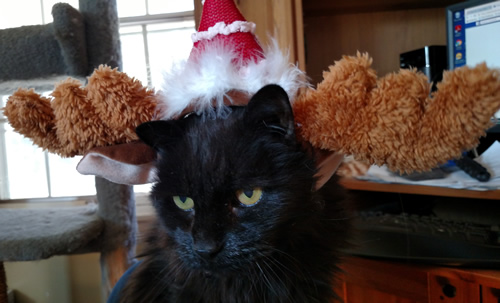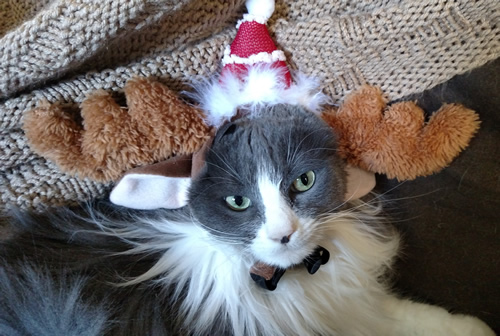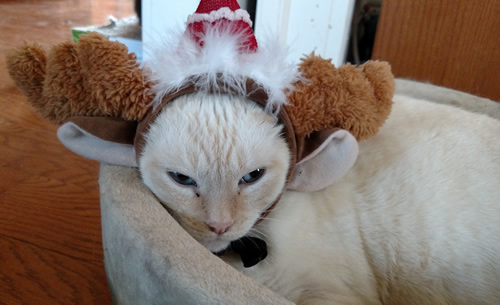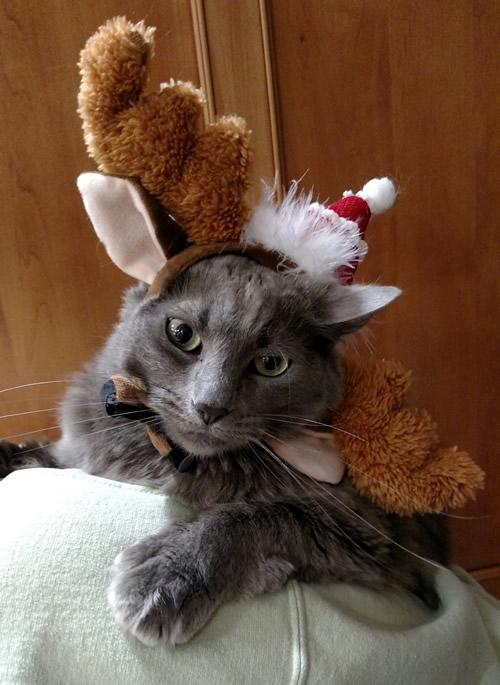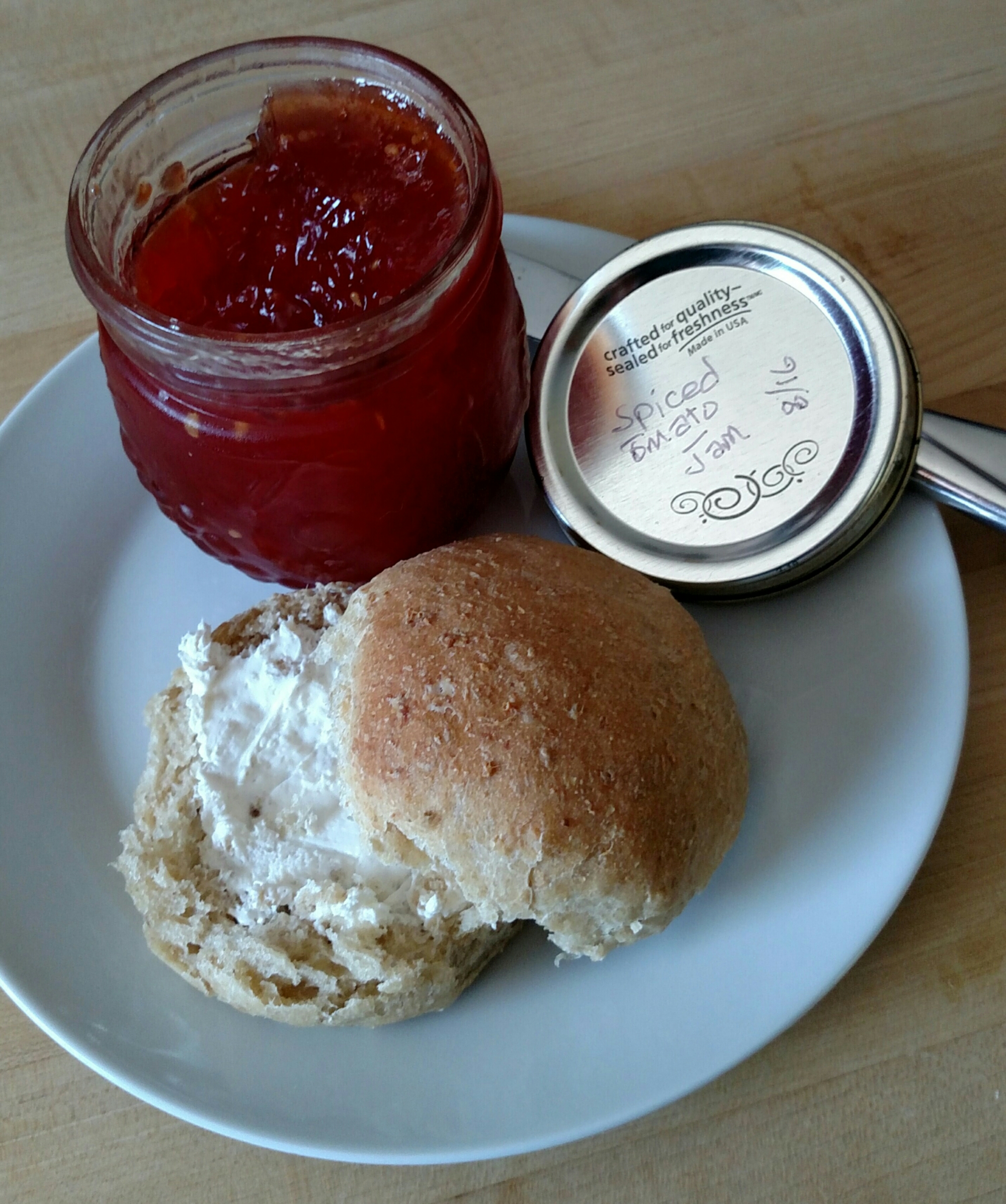Oh look, it’s February! And we all know what that means! It’s time once again for Thingadailies, where I, along with everyone else who’s craz….I mean, brave enough to join in, commit to making one thing a day for the entire month.
And here is today’s thing.
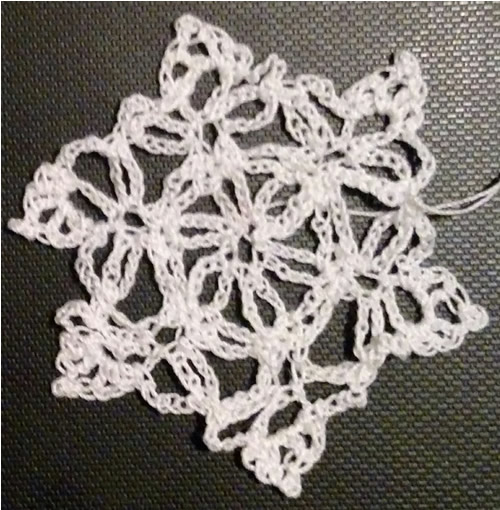
Yes, I know, some of you are going to point out that I made snowflakes last year too, but these are *different* snowflakes. This one, for instance, is Snowflake #30 from this book, because last year I whipped up Snowflakes #1 – #29, and there are 99 in the book, and despite the last few weeks morosely staring at my yarn stash and poking around on Ravelry and nothing else jumped out at me (except possibly hats, except that last year somewhere around March I went a wee bit overboard and knit up something like 30 or so hats so…uh…I really don’t need to make more hats at the present time. Or possibly ever.), so snowflakes it is.
Whee.
Making a snowflake a day for Thingadailies.
